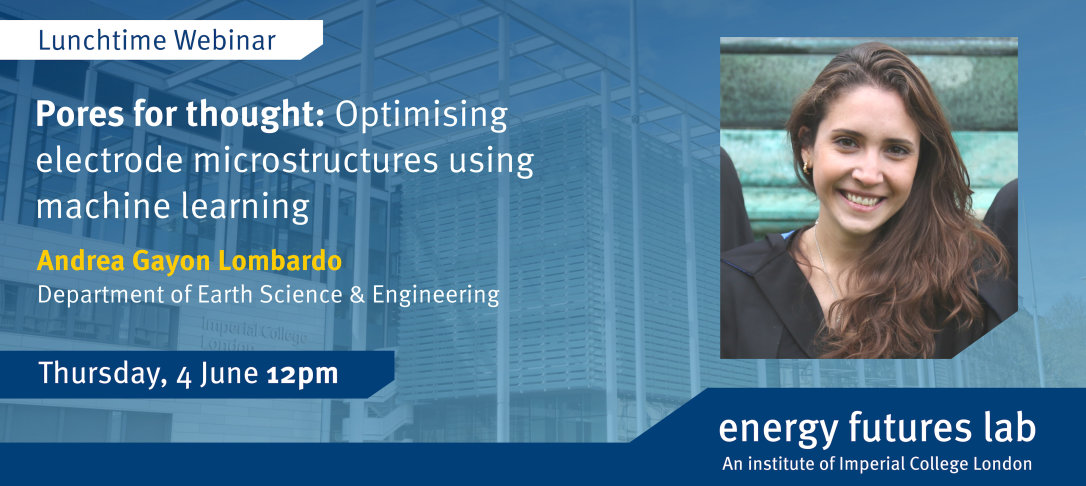
Abstract
The microstructure of porous electrodes significantly impacts the performance of electrochemical energy storage (EES) devices. Thus, their morphological optimisation is vital for developing the next generation of EES technologies. Recent improvements in 3D imaging techniques have allowed the characterisation of porous electrodes at a nanoscale. However, a variety of challenges remain, including how to extract the key metrics or “essence” of the microstructure with which synthetic volumes with equivalent properties can be generated. This work implements a novel machine learning technique called deep-convolutional generative adversarial networks (GANs) to generate 3D synthetic realisations of two different three-phase electrode microstructures: a Li-ion cathode and a SOFC anode. A statistical comparison between the real and synthetic data is performed in terms of the morphological properties (volume fraction, surface area, triple phase boundary) and transport properties (relative diffusivity), as well as the two-point correlation function. The results show excellent agreement between both datasets and they are also visually indistinguishable. The impact of this work lies in the ability to obtain a fully differentiable function that constitutes a “virtual representation” of the electrode microstructure. With this, it is possible to implement physical simulations which then can optimise the porous microstructure.
Biography
Andrea Gayon Lombardo is a PhD candidate in the Electrochemical Science and Engineering research group at Imperial College London, under the supervision of Prof Nigel Brandon and Dr Samuel J. Copper. She has degree in Chemical Engineering from the National Autonomous University of Mexico (UNAM) and an MPhil in Advanced Chemical Engineering from the University of Cambridge. Previously, Andrea worked as an engineer at Grupo SSC, Mexico, focusing on providing solutions to the oil and gas industry. While at Cambridge, she worked at the Schlumberger Gould Research Centre, performing research on electrochemical devices for energy storage. Her current research focuses on the implementation of machine learning algorithms in the design and optimisation of electrodes for electrochemical energy storage technologies.
Energy Futures Lab
Energy Futures Lab is one of six Global Institutes at Imperial College London. The institute was established to address global energy challenges by identifying and leading new opportunities to serve industry, government and society at large through high quality research, evidence and advocacy for positive change. The institute aims to promote energy innovation and advance systemic solutions for a sustainable energy future by bringing together the science, engineering and policy expertise at Imperial and fostering collaboration with a wide variety of external partners. The Energy Futures Lab daytime seminars are delivered by staff and students from across the College and further afield.